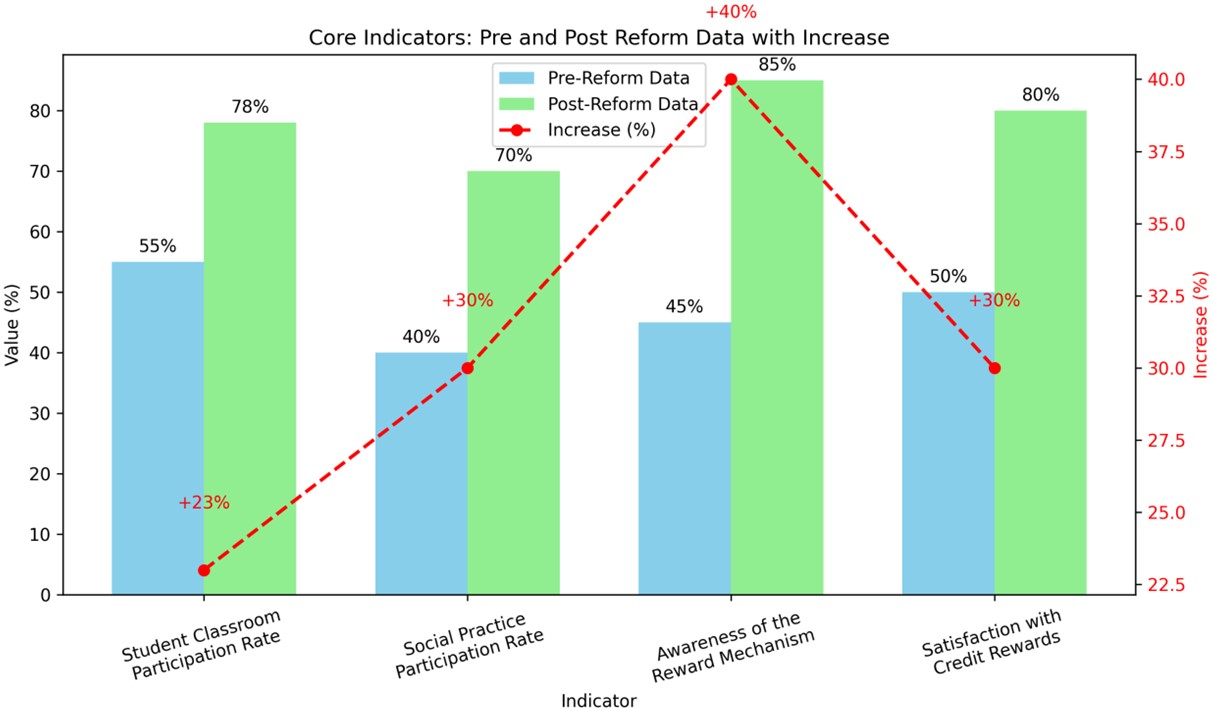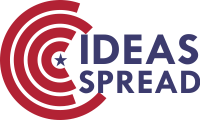A Study on University Students' Participation in College Ideological and Political Education from the Perspective of the "Big Ideological and Political Course"
Abstract
Based on the "Big Ideological and Political Course" concept, this paper explores the theoretical foundation, current situation, and challenges of university students' participation in college ideological and political education, and constructs a conceptual model of the student participation mechanism through literature review and theoretical analysis. The paper first reviews the background and connotations of the "Big Ideological and Political Course" concept, comparing the differences between traditional ideological and political education and the curriculum reform under the new concept. It then analyzes the current state and shortcomings of university students' participation in teaching. By exploring paths such as policy innovation, curriculum design reform, teacher-student interaction mechanisms, and the application of information technology, this paper proposes concrete strategies and theoretical innovations to promote deep participation of university students in college ideological and political education, providing new perspectives and practical insights for the reform of college ideological and political education.
References
[2] Teng, J. (2022). [Retracted] Exploration and analysis of the educational management of university students in the context of environmental constraints. Journal of Environmental and Public Health, 2022(1), 8112175. https://doi.org/10.1155/2022/8112175
[3] Lekner, D. (2021). Echolocating the social: Silence, voice, and affect in China's Hundred Flowers and Anti-Rightist Campaigns, 1956–58. The Journal of Asian Studies, 80(4), 933-953. https://doi.org/10.1017/S0021911821000781
[4] Masson, M., et al. (2022). Developing an anti-biased, anti-racist stance in second language teacher education programs. Canadian Modern Language Review, 78(4), 385-414. https://doi.org/10.3138/cmlr-2021-0020
[5] Mo, F. (2022). Strategies to cultivate Generation Z talent in marketing under the big data era. Open Access Library Journal, 9(1), 1-11. https://doi.org/10.4236/oalib.1108571
[6] Wang, K. (2023). Academic early warning model for students based on big data analysis. International Journal of Emerging Technologies in Learning (Online), 18(12), 16. https://doi.org/10.3991/ijet.v18i12.35599
[7] Schislyaeva, E. R., & Saychenko, O. A. (2023). The design of a mental health service platform for college students based on multi-modal information. Microprocessors and Microsystems, 96, 104748. https://doi.org/10.1016/j.micpro.2022.104748
[8] Grobe, C. (2020). The artist is president: Performance art and other keywords in the age of Donald Trump. Critical Inquiry, 46(4), 764-805. https://doi.org/10.1086/709035
[9] Spanò, R., et al. (2020). Integrated performance plans in higher education as means of accounting change: Insights into the Italian context. Management Control, 1(2020), 87-110. https://doi.org/10.3280/MACO2020-001005
[10] Zhang, S. G. (2020). Application of computer network information technology in educational reform. Information Recording Materials, 21(11), 53-54.


This work is licensed under a Creative Commons Attribution 4.0 International License.
Copyright for this article is retained by the author(s), with first publication rights granted to the journal.
This is an open-access article distributed under the terms and conditions of the Creative Commons Attribution license (http://creativecommons.org/licenses/by/4.0/).








1.png)

















